Limit Food Waste While Respecting Your Fullness
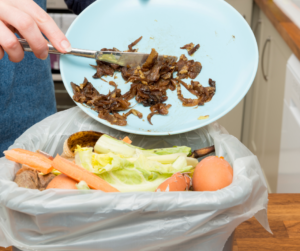 Wasting food is a hot topic in my house. While neither my husband nor myself like to waste food, I would sooner throw out leftovers or food that is “turning” than my husband would. For him, it’s about valuing the dollar. For me, it’s about respecting my body.
Wasting food is a hot topic in my house. While neither my husband nor myself like to waste food, I would sooner throw out leftovers or food that is “turning” than my husband would. For him, it’s about valuing the dollar. For me, it’s about respecting my body.
There are two types of food waste that I’d like to address. First, food that would be left on your plate after you’ve identified comfortable fullness. And second, food that is sitting around too long and is going bad, i.e. those bananas on your counter that are starting to get brown.
Food Left on Your Plate
If you’ve been a chronic dieter, it’s possible that you don’t know what comfortable fullness feels like. You can tell what full, overfull, and stuffed feels like, but comfortable fullness may be a foreign concept to you. This is likely because when you are dieting, you finish your plate because you are entitled to eat what you measured out. And, you’re a good rule follower, and if the diet told you what and how much to eat at dinner, you will finish the plate regardless of what your belly might say. More on this topic here.
As you move along your intuitive eating journey, you will begin to attune to hunger and fullness. And eventually, your belly will give you a signal that you are comfortably full and can stop eating now. If it happens to be that there is no food left on the plate, so be it. But if there is still food on your plate, then continuing to eat past the point of comfortable fullness will cause you to become overfull.
This is when you must decide. If you’re someone that values the dollar and doesn’t like to waste food, this can become an inner conflict. You might think that there isn’t “enough” left to save for later. But let’s take a moment to rethink this.
No matter how much is left on the plate when you’ve identified comfortable fullness, know that you don’t have to throw the food away. You can put it in a small storage container in the fridge to enjoy with your next meal or snack. I have, in the past, left over ¼ sandwich and added it to my next snack. What a treat!
Tip: If you continue to eat past comfortable fullness, the taste pleasure and satisfaction from the food diminishes. But it can be at its peak again if you save it to eat when you are hungry.
Food Spoiling
There’s nothing more aggravating than looking on the counter and seeing the bananas getting spotty, the potatoes sprouting, or the apples in the fridge turning brown. Like many others, when I food shop, I try to predict what my family will use within the next few days, however, sometimes plans go awry. Whether we decided on takeout one night or had a surprise family barbecue, some of the produce goes untouched.
As discussed earlier, I don’t want to eat the food if I am not hungry just to avoid wasting it. That is not treating my body with care and respect. But at the same time, I don’t want to throw it out. Below you will find 3 ways that I reduce food wastage while still honoring my body.
1.Freeze Your Produce
Instead of throwing out those bananas when you notice some spots, remove the peel, cut it in chunks and freeze it to use in a smoothie later. I do the same with berries. If I see them starting to “go”, I lay them on wax paper on a tray and freeze them. Certain produce cannot be frozen; however, a good amount of vegetables and fruit can be safely stored in the freezer for weeks. Vegetables like Brussel sprouts require blanching before freezing, however it is an easy process that takes minutes and can extend shelf-life by weeks.
2.Reinvent Your Meal
If you notice that the potatoes have started to soften, change your dinner game plan. Instead of making baked potatoes, which require more firm potatoes, make mashed potatoes! While it may not have been your intended use of the potatoes, you’re still able to eat them enjoyably without them going to waste. And guess what? You can freeze mashed potatoes too! I’ve done it many times.
And for those recovering chronic dieters, can I get a YUM for mashed potatoes. These were probably on your “do not eat” list for a while. Now that you have given up dieting, you can enjoy them without guilt.
Brown bananas? Make banana muffins!
Mushy peaches and plums? Make fruit compote!
You get the idea!
3.Proper Storage
While some fruits and vegetables can be left on the counter, most last longer in the refrigerator. The colder temperature in the refrigerator can slow down many of the enzymes in ripening, extending produce shelf-life. Research the best ways to store the produce you love to make sure you are enjoying them at their best.
There are so many ways that you can limit your food waste without compromising your intuitive eating journey. Let me know some of your tips below.

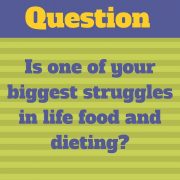
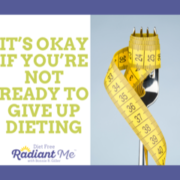

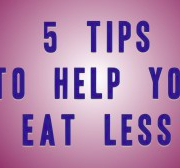
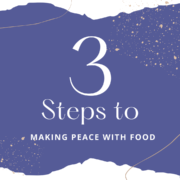





Quite happy we share tactics! I do all those things too.
Yay, Suzanna!!